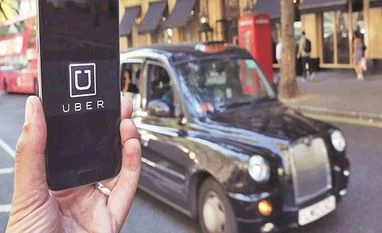In what could be a major blow to the gig economy, Transport for London (TfL) has refused to renew Uber’s licence to operate in the UK capital – its largest European market – on the grounds that its approach and conduct “demonstrate a lack of corporate responsibility” on issues which “have potential public safety and security implications”.
In its announcement, TfL cited concerns over passenger safety, arising from Uber’s failure to monitor the criminal and medical records of its drivers and to conduct related checks. The transport body was also critical of Uber’s use of “greyball” software, which prevents officials from monitoring Uber’s app, and from undertaking normal regulatory and law enforcement duties.
Yet despite these issues, TfL’s announcement provoked an enormous public backlash; more than 500,000 people had signed a petition protesting the decision within 24 hours, making it Change.org’s fastest growing petition in the UK this year. The petition – established by Uber – called on London Mayor Sadiq Khan to reverse the ban, accusing London of being “closed to innovative companies” that offer choice to consumers and employment opportunities to tens of thousands of Londoners.
The march of progress
The stance of Uber and its supporters reflects a view routinely presented in the media, politics and, indeed, in large parts of the social sciences. From this view, technology is seen as a kind of elemental force; one beyond the control of law and policy, and beholden only to the whims of those who develop and sell it. To resist technology is to stand in the way of history and progress.
A variation on this argument holds that while some in society – mostly those with vested interests – might be in a position to frustrate technological advances, the public interest lies in preventing them from doing so. Likewise, many saw the Uber ban as an attempt to protect the interests of black cab drivers at the public’s expense, following a long-running campaign against the firm by the Licensed Taxi Drivers’ Association.
The argument goes that capitalism proceeds through waves of “creative destruction”, which should be ushered forward as quickly as possible, not unduly stifled by regulation and red tape. Those who oppose this inexorable march are often denounced as “Luddites” – a term which today describes a person with irrational or small-minded opposition to technological change, sometimes with violent consequences.
The Luddites’ legacy
Historically, the Luddites were a group of 19th century English textile workers and weavers who destroyed weaving machinery to protest against their adoption by English mills. Conventionally described as “machine breakers”, they were in fact resisting attempts by employers to avoid minimum wage laws and customary rules of industrial trades that were centuries old. The court system refused to enforce these laws to protect the trades, on the grounds that to do so would be inconvenient for factory owners.
The Luddites failed to halt the rise of the factory – indeed, some were sentenced to death or transportation for their actions – but their example of resistance to abuse of power left a legacy. Within a few decades, collective bargaining over wages and conditions was being established in the same industrial districts that had witnessed the Luddite risings. In due course, this new mode of regulation led to the development of social legislation and the modern welfare state.
The story of the Luddites suggests an alternative view of technology; one which recognises that technological change occurs in phases. We are currently going through a stage of rapid development, in which it seems that technology is outstripping the capacity of lawmakers and regulators to respond. We often hear that regulators “can’t keep up” with the pace of change in industry.
This refrain is generally at its loudest just before a social or financial crisis occurs, often driven by the adoption of new technology, which brings regulators back into the frame and triggers new laws and modes of governance. The process runs in a cycle, with the law responding to technological and organisational change after a lag, then setting the framework for a further round of innovation. This cyclical process is borne out in the study of systems theory and evolutionary economics, but we are seeing now that these insights are in some ways transferable to the study of technological change.
Another cycle
TfL’s response is a sign that the next phase in this socio-technical cycle is beginning. Technology, such as the Uber app platform, is creating modes of delivery for goods and services which are often on the borderline of legality. Technology companies have been exploiting this uncertainty to entrench their position and defend it forcefully. Now, it seems as though regulators are finally catching up.
Uber will challenge TFL’s decision, as it did when a 2016 employment tribunal ruled that drivers were, in fact, employed by Uber, and therefore entitled to certain benefits. While these cases are being appealed, Uber will probably continue to operate much as before.
Simon Deakin, Professor of Law, University of Cambridge and Christopher Markou, PhD Candidate, Faculty of Law, University of Cambridge
This article was originally published on The Conversation. Read the original article.
To read the full story, Subscribe Now at just Rs 249 a month
Already a subscriber? Log in
Subscribe To BS Premium
₹249
Renews automatically
₹1699₹1999
Opt for auto renewal and save Rs. 300 Renews automatically
₹1999
What you get on BS Premium?
-
Unlock 30+ premium stories daily hand-picked by our editors, across devices on browser and app.
-
Pick your 5 favourite companies, get a daily email with all news updates on them.
Full access to our intuitive epaper - clip, save, share articles from any device; newspaper archives from 2006.
Preferential invites to Business Standard events.
Curated newsletters on markets, personal finance, policy & politics, start-ups, technology, and more.
Need More Information - write to us at assist@bsmail.in
)